
HIFAZAT: UPGRADING INDIA'S ARSENAL-SCOPE, CHALLENGES AND OUTCOMES
KEY SPEAKERS


Lt.Gen K.J. Singh, PVSM, AVSM & Bar
Former General officer commanding-in-chief of Western Command & Advisor to Chief Minister, Haryana


Lt.Gen Shokin Chauhan, PVSM, AVSM, YSM, SM, VSM
Former Director General Assam Rifles, Government of India


Lt.Gen Sanjay Kulkarni, PVSM, AVSM, SC, SM, VSM
Former Director General, Infantry, (IA), Ministry of Defence, Government of India






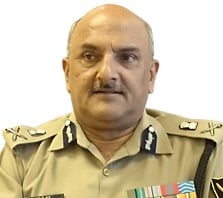











Air Vice Marshal Pranay Sinha, VSM
Former Senior Air and Administration Staff, Indian Air Force, Govt. of India & Strategic Advisor, IIT-Mandi
Sh. Sanjeev K Sood, IPS (R)
Former Additional Director General, Border Security Force, Govt. of India
Air Vice Marshal Sudhanshu Saxena, VSM
Former Air Vice Marshal, Indian Air Force, Ministry of Defence Govt. of India
Sh.Rattan Chand Sharma
Former Commandant, Border Security Force, Government of India
Prof.Manamohni Kaul
Former Professor of International Relations, Jawahar Lal Nehru University
Commodore S.L. Deshmukh
Former Commodore, Indian Navy, Ministry of Defence, Government of India. Presently Vice President, Sun Group
Dr.Bharat Bose
Strategic Thinker & Defence Expert
Air Marshal P.K.Roy, AVSM VM VSM
Former Commander-in-Chief of Andaman and Nicobar Command, Former Commandant of National Defence College
Air Vice Marshal SC Chafekar, AVSM SC
Former Senior Air and Administration Staff Officer, Indian Air Force, Govt. of India
Air Marshal P.K.Roy, AVSM VM VSM
Former Commander-in-Chief of Andaman and Nicobar Command, Former Commandant of National Defence College
Air Vice Marshal SC Chafekar, AVSM SC
Former Senior Air and Administration Staff Officer, Indian Air Force, Govt. of India
Air Vice Marshal Pranay Sinha, VSM
Former Senior Air and Administration Staff, Indian Air Force, Govt. of India & Strategic Advisor, IIT-Mandi
Sh. Sanjeev K Sood, IPS (R)
Former Additional Director General, Border Security Force, Govt. of India
Air Vice Marshal Sudhanshu Saxena, VSM
Former Air Vice Marshal, Indian Air Force, Ministry of Defence Govt. of India
Sh.Rattan Chand Sharma
Former Commandant, Border Security Force, Government of India
Prof.Manamohni Kaul
Former Professor of International Relations, Jawahar Lal Nehru University
Commodore S.L. Deshmukh
Former Commodore, Indian Navy, Ministry of Defence, Government of India. Presently Vice President, Sun Group
Overview
The event brought together a distinguished gathering of top policymakers, senior officials from the Indian Armed Forces and CAPF, Ministry of Defence officials, esteemed academicians, scholars, and industry executives in the defense and military sector. It provided a unique platform for these influential individuals to converge and actively participate in thought-provoking discussions. The central focus of the event revolved around India's national security, addressing a wide range of pertinent issues crucial to the country's defense and protection.
The event fostered an environment of knowledge-sharing, where thought leaders and experts shared their valuable insights, offering in-depth analysis and interpretation of India's contemporary security apparatus. By exploring and deciphering the complexities of the nation's security landscape, participants gained a deeper understanding of the challenges and opportunities faced by India in the present era.
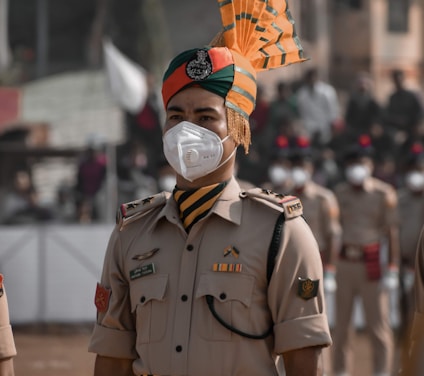
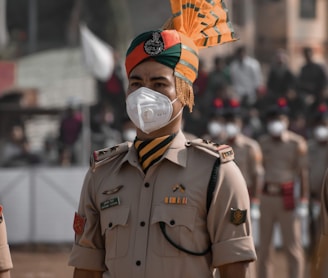
SESSION 1
Contemporary Challenges to India's Internal Security and Policing
Session 1: Contemporary Challenges to India's Internal Security and Policing
Rethinking Internal Security Management: Is a Paradigm Shift Necessary? a. The delayed adoption of new technology in CAPF and law enforcement agencies b. The absence of a comprehensive national security policy, particularly concerning technology c. The role of state governments in internal security management
Enhancing Police-Public Relations: Building Trust and Confidence a. Public fear and distrust towards the police b. Measures to foster trust and confidence in law enforcement c. "Firm, Fair, and Friendly": The evolving mantra of modern policing
Streamlining the Path from Crime to Justice: Reducing Investigation Time a. Shortening the time required for standard investigation procedures b. Enhancing the efficiency of criminal investigation processes c. National DNA Database: Potential and Challenges
SESSION 2
Air Force - Modernization and Indigenization of the Indian Air Force
Session 2: Air Force - Modernization and Indigenization of the Indian Air Force
Striving for Self-Reliance: Emphasizing Indigenous Equipment Integration a. Overreliance on foreign producers for advanced fighter aircraft b. Challenges posed by lengthy decision-making and acquisition processes (bureaucracy)
Upgrading Legacy Equipment: A Need for Modernization? a. The shortcomings of the Public Sector in providing cutting-edge technology and timely delivery of aircraft b. Hindustan Aeronautics Limited (HAL) and the delayed first flight of Mk 2 fighter aircraft to 2024-25
SESSION 3
Reimagining the Geostrategic and Geopolitical Significance of the Indo-Pacific Region Date
Session 3: Reimagining the Geostrategic and Geopolitical Significance of the Indo-Pacific Region Date
The Evolving Landscape of Marine Policing and Maritime Security in India
Assessing the Effectiveness of the QUAD in Containing China's Aggressive Policies in the Indo-Pacific Region: Exploring the Significance of QUAD for India's Future Perspectives
Advancing India's Naval Assets: Can Modernization Lead to the Realization of a "Safe," "Free," and "Open" Indo-Pacific Region? Enhancing Naval Capabilities through Increased Investment to Strengthen India's Strategic Importance in the Face of Competing Powers
The Impact of Climate Change on Maritime Security and the Overall Development of the Indian Ocean Region (rephrased in advanced English)
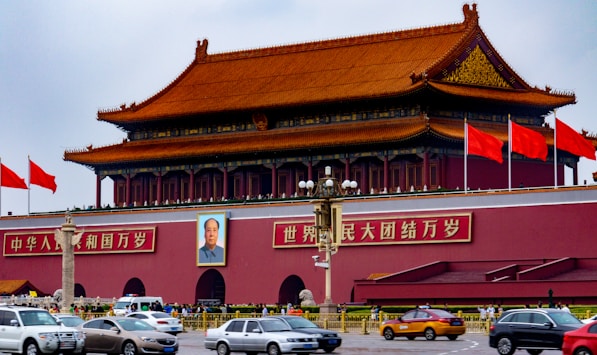

Key Policy Recomme-ndations by the Panel:
1. Strengthening Internal Security Management:
a. Formulate a comprehensive national security policy that focuses on incorporating indigenously developed equipment in CAPF and law enforcement agencies. This policy should prioritize reducing dependency on foreign producers for the latest generation fighter aircrafts. By encouraging the indigenous production of such equipment, India can enhance its self-reliance and reduce vulnerabilities associated with external suppliers.
b. Streamline decision-making and acquisition processes by addressing bureaucratic hurdles. This can be achieved by introducing reforms that streamline procedures, eliminate unnecessary delays, and ensure transparent and efficient decision-making. Emphasis should be placed on expediting the adoption of advanced technologies to keep pace with emerging security challenges.
2. Enhancing Police-Public Relations:
a. Implement targeted initiatives to address the prevailing fear and distrust between the public and the police. Focus should be placed on community engagement programs, awareness campaigns, and outreach initiatives to bridge the gap and build mutual trust. Encouraging regular interactions between law enforcement personnel and the community can foster better understanding and collaboration.
b. Adopt a "Firm, Fair, and Friendly" approach as the guiding principle for policing. This requires police forces to strike a balance between enforcing the law firmly, ensuring fairness in their actions, and adopting a friendly and approachable demeanor. Training programs should be designed to equip police personnel with the necessary skills and knowledge to interact with the public effectively and sensitively.
3. Modernizing the Air Force:
a. Promote and incentivize indigenous research, development, and production of state-of-the-art fighter aircraft and other critical equipment. This entails investing in research institutions, fostering collaborations between academia and the defense industry, and offering financial incentives for domestic manufacturers. The aim is to reduce dependence on foreign producers and strengthen the nation's technological capabilities.
b. Streamline the procurement and delivery processes within the Public Sector to ensure timely and efficient delivery of aircraft. Addressing any existing bottlenecks, such as bureaucratic inefficiencies or delays in production, will help expedite the modernization efforts and maintain a technologically advanced air force.
4. Geostrategic and Geopolitical Importance of the Indo-Pacific Region:
a. Strengthen and expand cooperation within the QUAD framework to effectively counter China's aggressive policies in the Indo-Pacific region. This entails deepening strategic partnerships, enhancing information sharing, and conducting joint military exercises. Regular high-level dialogues should be facilitated to address common security challenges and explore collaborative solutions.
b. Increase investments in naval capabilities and modernization to enhance India's strategic importance in the Indo-Pacific region. This includes acquiring advanced naval assets, improving maritime surveillance systems, and investing in research and development for cutting-edge technologies. Such investments will bolster India's ability to project power, maintain regional stability, and safeguard its national interests.
c. Incorporate climate change considerations into maritime security planning. This involves developing strategies to address the impact of climate change on the Indian Ocean region's overall development and security. Collaborative efforts with regional partners, such as sharing best practices, conducting joint research, and implementing sustainable development initiatives, will contribute to the long-term resilience and stability of the region.
These detailed policy recommendations aim to address the identified challenges and capitalize on the opportunities discussed during the sessions. By implementing these measures, India can enhance its internal security, strengthen diplomatic ties, and position itself as a key player in the Indo-Pacific region.

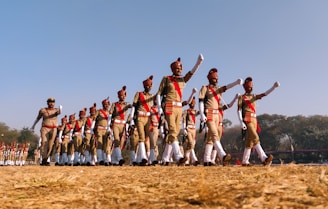
Get the Event Report
Politika & Consilium Research Institute is a government-registered company under the Company Act & India's leading Civil Think Tank.
CIN: U85190DL2021OPC388917
UDYAM NO: UDYAM-DL-11-0027274
Corporate HQ: Assotech Business Cresterra, Noida
Hours
I-V 9:00-18:00
VI - VII Closed
Contacts
011-430151335,36
mail@pcriindia.in, academy@pcriindia.in, careers@pcriindia.in




